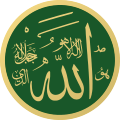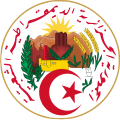This article does not cite any sources . Please help improve this article by adding citations to reliable sources. Unsourced material may be challenged and removed. Find sources: "Public holidays in Algeria" – news · newspapers · books · scholar · JSTOR (January 2022) ( Learn how and when to remove this message ) |


